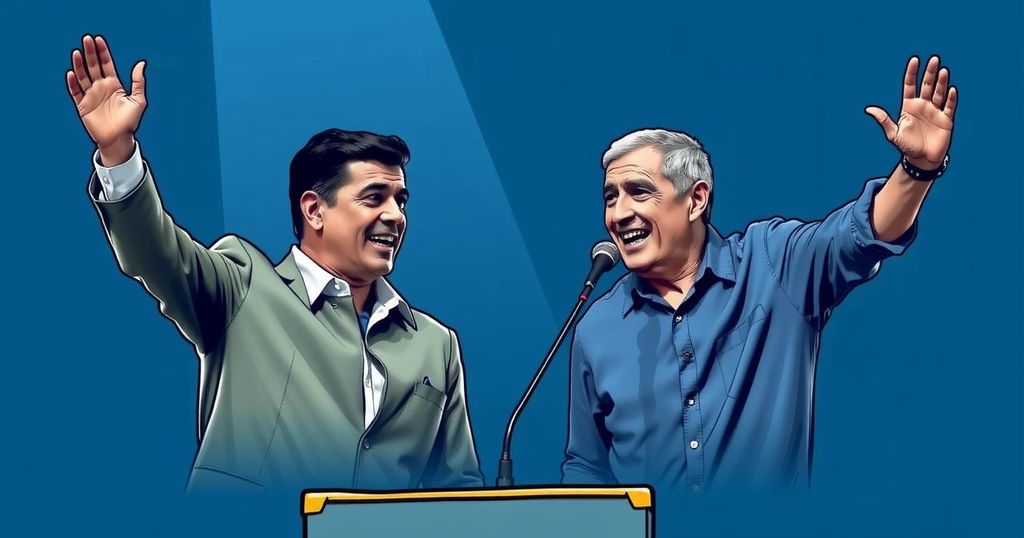Uruguay’s presidential runoff features a close race between Álvaro Delgado of the National Party and Yamandú Orsi of the Broad Front. Voter indecision and mounting concerns over crime and inequality dominate the electoral discourse. Both candidates stress the need for cooperation and propose distinct policy approaches to challenge these issues. As the nation awaits the election’s outcome, mutual respect and potential collaboration highlight Uruguay’s democratic principles.
Uruguay conducted its presidential runoff election on Sunday, witnessing a tight contest between Álvaro Delgado of the National Party and Yamandú Orsi representing the leftist Broad Front coalition. After no candidate secured an outright majority during the first round of voting on October 27, both contenders emerged as formidable opponents in a race characterized by voters’ growing concerns over violent crime and economic inequality. Despite their seemingly lackluster campaigns, persistent indecision among approximately ten percent of voters has made the election even more unpredictable.
Delgado, seeking to maintain the center-right momentum established by the outgoing President Luis Lacalle Pou, emphasizes a stringent approach to crime alongside continuity of pro-business policies. Conversely, Orsi, reflecting on the legacy of the Broad Front, promises a community-based strategy towards crime prevention while pursuing economic reforms. Hence, both candidates are striving to present their vision for Uruguay while acknowledging the political necessity for compromise regardless of the election’s outcome.
As both candidates presented their respective policies, Delgado posited that his approach would symbolize a continuation of effective governance, encapsulated in his campaign slogan “re-elect a good government.” In contrast, Orsi aims to cultivate a “new left” without enacting radical changes, focusing instead on dialogue and negotiation in a parliamentary system likely to require cooperation. The election’s outcome rests on how well each candidate can convincingly address the electorate’s pressing issues amid a relatively calm political climate devoid of the populist fervor seen in other regions.
Furthermore, both candidates pledged to ensure a respectful transition of power if either is successful. Their mutual acknowledgment of collaboration underscores the importance of unity in Uruguayan politics, which has historically valued democratic processes and civil discourse. The nation awaits a definitive conclusion to a neck-and-neck electoral face-off that will significantly shape its future policies and governance.
Uruguay’s political landscape has shifted since the Broad Front’s governance, marking a significant transition following their defeat in 2019. The current elections find the nation grappling with pressing concerns such as rising crime rates and socio-economic disparities. The candidates, Álvaro Delgado and Yamandú Orsi, represent distinct ideological positions, yet they share a common recognition of the pragmatic need for cross-party cooperation. This election is further complicated by historical voting trends and the overarching influence of the outgoing government’s performance on voter sentiment.
The presidential runoff in Uruguay has transformed from an anticipated event into a competitive race marked by close polling and significant voter unease over pressing issues. As both candidates appeal to the electorate’s fears and aspirations, the post-election landscape will depend heavily on collaboration and compromise amidst a fragmented Congress. In essence, the election underscores the importance of consensus and democratic values within Uruguay’s unique political framework.
Original Source: www.cnn.com






